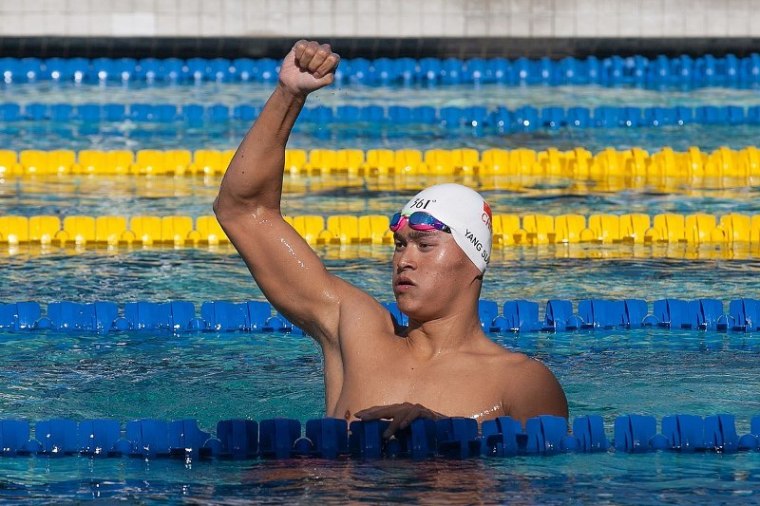
While you could be forgiven for thinking that there is absolutely nothing else worth reporting about in the world right now other than the coronavirus pandemic, and the impact it is having on everything from toilet paper to the Olympics, there are still other stories buried beneath the it all.
Those of you who follow what’s happening in the world of sport might have noticed a rare mention of China that didn’t involve the virus, instead touching on an infection of a different kind.
A Vial Act
In the culmination of an ongoing saga that started in September 2018 when Chinese swimmer Sun Yang smashed vials containing blood samples taken at an out-of-competition test in what he claimed was a protest against the testing process, the reigning world and Olympic 200m freestyle champion was banned for eight years—effectively ending his career.
While that might be the official last word, it’s unlikely to bring an end to the war of words that has been fought in the papers and on social media over the past year and half. To some, Sun Yang is a martyr who has been punished for standing up to an unjust bureaucracy on a matter of principle, or even a victim of racism.
To others, he is a drug cheat with a long record that has finally caught up with him, and who has cheapened the sport and robbed other athletes of their rightful accolades. A ban is not enough for many, they would see him stripped of his medals and records.
A Matter of Pride
Things have gotten quite nasty, as Sun Yang has a legion of devoted fans, many of them fellow Chinese who see him as a national hero. Australian swimmer Mack Horton, who refused to take the podium with Yang and has been a vocal critic, has attracted their opprobrium and become the subject of concerted attacks.
It seems that there is no middle ground, you either think he is a drug cheat or not. This is despite Yang trying to paint it as not about whether he would have tested positive or not, but about whether he was justified in refusing a test. And, funnily enough, I agree—it really doesn’t make any difference.
There’s no IV in team
To me, Yang’s crime was refusing to do everything in his power to stamp out drugs in sport. Yes, the testing process may be intrusive, it may not be convenient, it may even be offensive to athletes to have to prove they are not cheats. But, isn’t that a price worth paying to ensure the sanctity of the sport?
If an athlete isn’t willing to put that first maybe they shouldn’t be playing. Even if Yang wasn’t trying to hide a positive result—and I think we all know the most likely answer to that question—he was showing that a drug free sport was less important than his pride.
A question of priorities
I also can’t help but make the comparison with Working with Children checks. It’s hard to think of any argument against having to go through one that outweighs the need to ensure the safety of children. It may inconvenience a thousand people who do the right thing, but if it catches one who doesn’t then it’s a simple equation. And, drug tests are no different in one regard—if you haven’t done anything wrong you’ve got nothing to worry about.
Perhaps the best conclusion is to point out an example of an athlete willing to put the sport before themselves. Spare a thought for cricketer Rachael Haynes, part of the victorious Women’s T20 World Cup team. While her team mates were onstage with superstar Katy Perry celebrating their victory, she was being subjected to a random drug test, far away from the stage. If anyone had good reason to flip a table it was her—but aside from some justifiable grousing, she has shown she knows what is rally important.

David Goodwin is the former Editor of The Salvation Army’s magazine,War Cry. He is also a cricket tragic, and an unapologetic geek.
David Goodwin archive of articles may be viewed at http://www.pressserviceinternational.org/david-goodwin.html